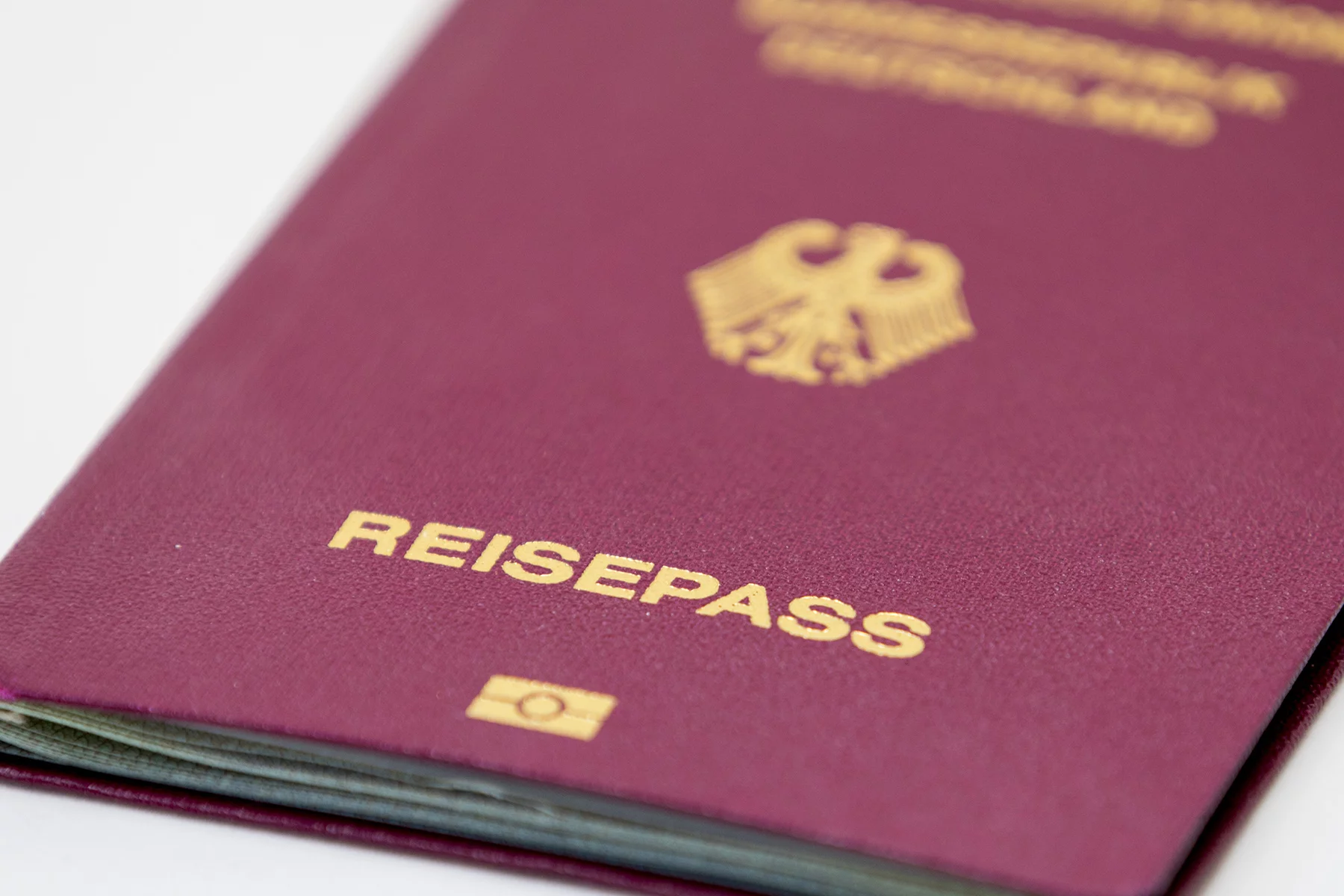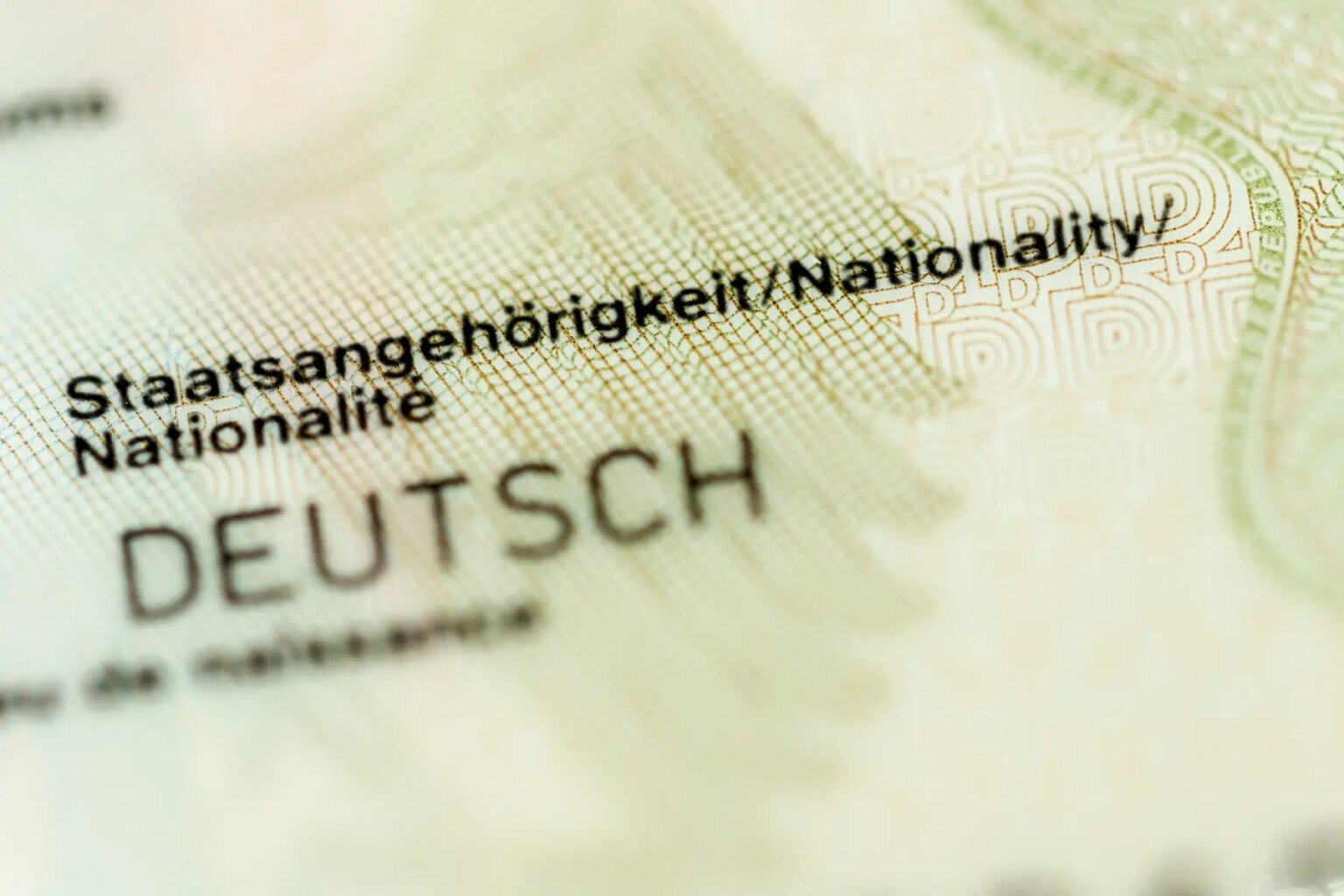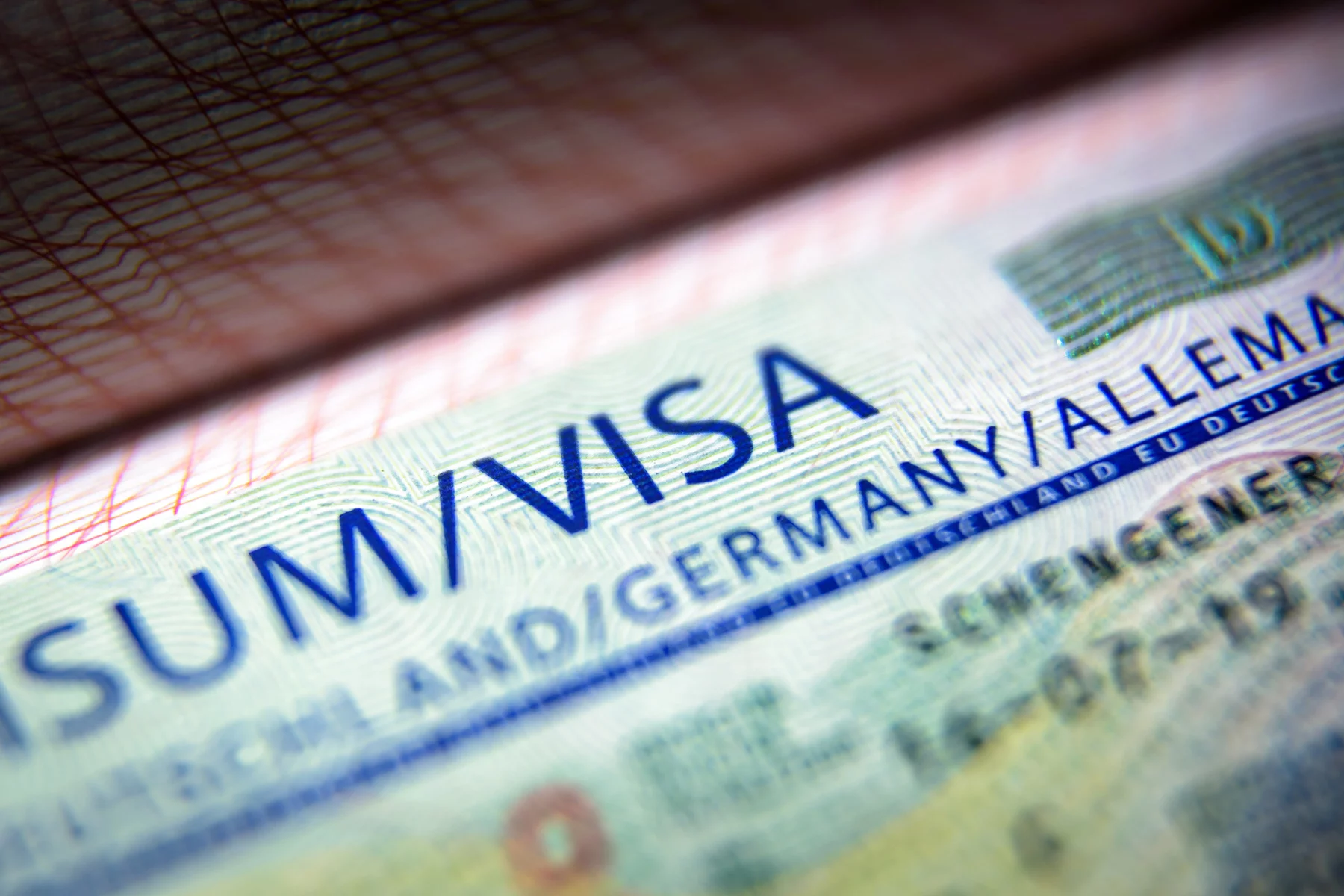German citizenship means you’ll be able to live in Germany indefinitely. This will give you the right to vote, consular protection, free movement and unrestricted access to the German jobs market. For foreigners in Germany, nationality offers much more stability.
The good news is that expats can usually apply for German citizenship after a certain number of years of residence. However, if you’re only just moving to Germany, you may need a visa and temporary residence permit.
Read on to find out more about the following:
- Citizenship in Germany
- Citizenship by birth in Germany
- Citizenship by descent in Germany
- Getting citizenship by naturalization in Germany
- Getting German citizenship by marriage
- Citizenship as a refugee in Germany
- Citizenship test in Germany
- Passports in Germany
- Dual nationality in Germany
- Losing or renouncing German citizenship
- Citizenship appeals in Germany
- Useful resources
Citizenship in Germany
The German Federal Office of Administration (Bundesverwaltungsamt – BVA), part of the German Ministry of the Interior and Community, (Bundesministerium des Innern und für Heimat – BMI), is in charge of citizenship in Germany. The process of becoming a German citizen is notoriously bureaucratic; there tends to be a lot of paperwork and it can be quite complicated.
That being said, there are a lot of expat citizens living in Germany. According to Destasis, there were 109,880 new grants of citizenship in Germany in 2020.
In addition to being able to vote, consular protection, and unrestricted access to the job market, German citizens also have to take on certain responsibilities.
These include integrating into German society and obeying all German laws. You may also have to serve in the German military in certain situations.
There are three main ways to get German citizenship:
- Naturalization: you’ll have to fulfill certain requirements set by the German government to qualify, such as living in the country for a certain amount of time. This varies depending on the grounds you’re seeking citizenship.
- By right of blood: if your parents are German.
- By right of soil: if you are born in Germany.
Citizenship by birth in Germany
If you’re born in Germany, you will often automatically get German citizenship. This is by right of soil.
If neither parent is German, there are some important additional requirements for children. The child can only get German citizenship if, at the time of birth, at least one parent has been a legal resident in the country for at least five years.
If you are eligible for German citizenship in this way, you must decide between the ages of 18-23 whether you want to retain your German citizenship or that of your parents.
How to apply for citizenship by birth in Germany
In general, you don’t need to apply for citizenship by birth. You will automatically acquire this citizenship and the German authorities will normally contact you when you reach the age of 18 to see if you wish to retain your German citizenship. If you feel that you are a German citizen by birth but haven’t received your citizenship, you can contact the BVA, your local immigration office or the embassy of your home country in Germany.
Citizenship by descent in Germany
Citizenship by descent refers to the right of blood circumstance.
A child is automatically a German citizen from birth if they are born to at least one German parent who still has German citizenship. This is irrespective of whether the child was born in Germany or abroad. This is also the case if a child is adopted by German parents when they are under 18.
However, if a child is born outside of Germany to a German parent, who was also born abroad after 1 January 2000 and hasn’t returned to Germany, then the child can’t be a German citizen by descent. The only way around this issue is to register the birth with a German embassy or consulate within one year. It’s also possible to get around this ruling if denying German citizenship would mean the child is stateless.
Any child born to one foreign parent and one German parent, or to a parent holding German dual nationality, will get citizenship of all their parents’ nationalities. However, this is only temporary. When the child reaches 18 years old, he or she has five years to choose between German citizenship by descent, or the nationality of the parents.
If a child has a German father who is not married to the mother, acknowledgement or legal establishment of paternity is required before the child turns 23 in order to claim German citizenship.

How to apply for citizenship by descent in Germany
You can apply for German citizenship by descent through the BVA or the German embassy or consulate in your home country. You will need to have all the evidence relating to your claim, for example birth certificates and proof of German citizenship of at least one parent. There is no fee for this application.
Getting citizenship by naturalization in Germany
Most expats will need to apply for German citizenship by naturalization.
There are many requirements you’ll have to fulfill before you can apply. They include:
- Living in Germany on a residence permit for at least five years (reduced to three years if you have attended an integration course)
- Being able to demonstrate good German language skills to support yourself in everyday life
- Being financially able to support yourself and your family without any help from the state
- Not having a criminal record
- Passing a citizenship test to show familiarity with German laws and culture (see more below)
- Renouncing any previous citizenships, unless you are eligible for dual nationality (more below)
If you are required to prove your German language skills, you can attend a full integration course and obtain the DTZ certificate (German test for immigrants).
How to apply for citizenship through naturalization/residence
If you meet all of the requirements listed above, you can then apply for citizenship. Parents and legal guardians should apply for children aged under 16.
You can get an application form from your local immigration office (Ausländerbehörde), city council, regional district office, or town council. The application costs €255 for adults and €51 for children under 16 who apply along with their parent. Fees may be reduced or completely waived in certain special cases.
In addition to the form, you’ll need to supply the following documents to prove that you meet the naturalization requirements:
- Bank statements to prove your financial position
- German residence records
- Proof of your German language skills, mentioned above
- Receipts to show you’ve paid the fees
- Naturalization certificate from passing the citizenship test
When you have collected all completed documents, you need to submit your application to the office which originally issued the application form. The processing time for citizenship applications is quite lengthy and can take up to two years.
Getting German citizenship by marriage
Marrying a German citizen doesn’t automatically entitle you to a German nationality. There are additional requirements you’ll have to meet – you must have been married for at least two years, and been a legal resident in Germany for at least three years to qualify.
To get German citizenship by marriage, you’ll need to apply for naturalization and fulfill all of the other requirements needed, in addition to the marriage requirements. The application process and fees are the same as for naturalization.
Citizenship as a refugee in Germany
For anyone living in Germany as a refugee, the process of applying for German citizenship by naturalization also applies. The same conditions must be met, and refugees must also give up their home country’s citizenship.
In certain circumstances, refugees in Germany applying for citizenship may be able to get a reduction or waiver on the application fees.
Citizenship test in Germany
In order to apply for citizenship, you’ll need to pass the German citizenship test. The test lasts for one hour and consists of 33 multiple-choice questions on different topics, including 30 questions split into three topic areas: living in a democracy, history and responsibility, and people and society. There are also three additional questions relating to the federal state where the applicant lives.
You have to answer at least 17 questions correctly to pass the test, and you can re-sit the test if you don’t pass. If you pass, you get a certificate to present to the naturalization authorities.

The German citizenship test itself costs €25. However, you’ll have to pay a further €25 to get the certificate you need for your application. The local immigration office in your area can tell you where your nearest test centre is so you can register. You need to bring a form of ID on the test day.
There’s a free online testing resource (in German) to help people practice for the test. Furthermore, some Federal Länder offer naturalization courses to help you prepare.
Citizenship test exemptions
A few people are exempt from taking the citizenship test. These include:
- Children under 16
- Anyone who cannot take the test due to old age, illness, or a disability
- Those with a higher education degree in politics, law, or social sciences from a German university.
Passports in Germany
You might want to get a German passport (Deutscher Reisepass) once you have your German citizenship. To apply, you’ll need to make an appointment at the citizens’ office (bürgeramt) in your municipality, and must attend in person as your fingerprints will be taken for a biometric passport.
You’ll need to provide the original and one photocopy of the following:
- Passport application form
- Current passport
- Birth certificate (if it’s not in German or English, you must also provide a translation)
- Marriage certificate/extract of German family book (if applicable)
- German naturalization certificate (if applicable)
- Recent proof of address, for example, a utility bill
- Two recent identical passport photos
As of 2012, all children must also have their own passports, which parents must apply for.
It usually takes three to six weeks to receive your new passport.
Dual nationality in Germany
Internationals do not need to give up their nationality in order to get German citizenship. In lieu of a legislative reform in 2023, expats are allowed to have multiple citizenship. What’s more, the naturalisation process has sped up from eight years to five years (or three if you have a high level of integration), meaning you can attain dual nationality faster than ever before.
Other groups of people that hold two citizenships include:
- Children with one German and one foreign parent, or a parent who has two citizenships
- Re-settlers of ethnic German descent and their family members (admitted along with them)
- Those from countries that do not allow them to give up their citizenship
- Germans who acquire citizenship of another EU country or Switzerland.
There are also special cases when it comes to dual citizenship between Germany and the UK, and Germany and the USA. Children born with one German parent and one parent from the USA or UK can retain both citizenships.
If you hold German dual citizenship, you are still viewed as a German citizen, and have the same rights as any German citizen while you are living in Germany. However, if you choose to live in the country of your other citizenship you will lose your right to claim German consular protection and can only claim the services of the other country.
Losing or renouncing German citizenship
You can give up or renounce your German citizenship as long as you can prove that you have citizenship of another country, or have applied for citizenship elsewhere. You can refrain from doing this if you have or acquire citizenship in another EU/EFTA country, or if you are entitled to dual nationality (see above section).
If you are still employed in a public service position in Germany, you cannot give up your German citizenship.
Other reasons that can lead to loss of citizenship in Germany are:
- Joining military forces of a country where you hold another citizenship without getting the permission of the German authorities.
- Being arrested for a serious crime or considered by the authorities as a threat to German security – this only applies to those who obtain German citizenship through naturalization.
You can reapply for naturalization if you lose your German citizenship. The process will be the same, and you will have to give up all previous citizenships.
Citizenship appeals in Germany
If your citizenship application in Germany is turned down or if you have a complaint about the way your application or query has been handled, you can complain to the BVA. You should do this within one month of receiving your decision.
If you are unhappy with the outcome of your appeal, you can take it to the administrative courts in Germany within one month of receiving the decision.
Useful resources
- Federal Office of Administration (Bundesverwaltungsamt – BVA) – German central government office responsible for citizenship
- Federal Ministry of the Interior and Community (Bundesministerium des Innern und für Heimat – BMI) – German ministerial department that oversees citizenship







